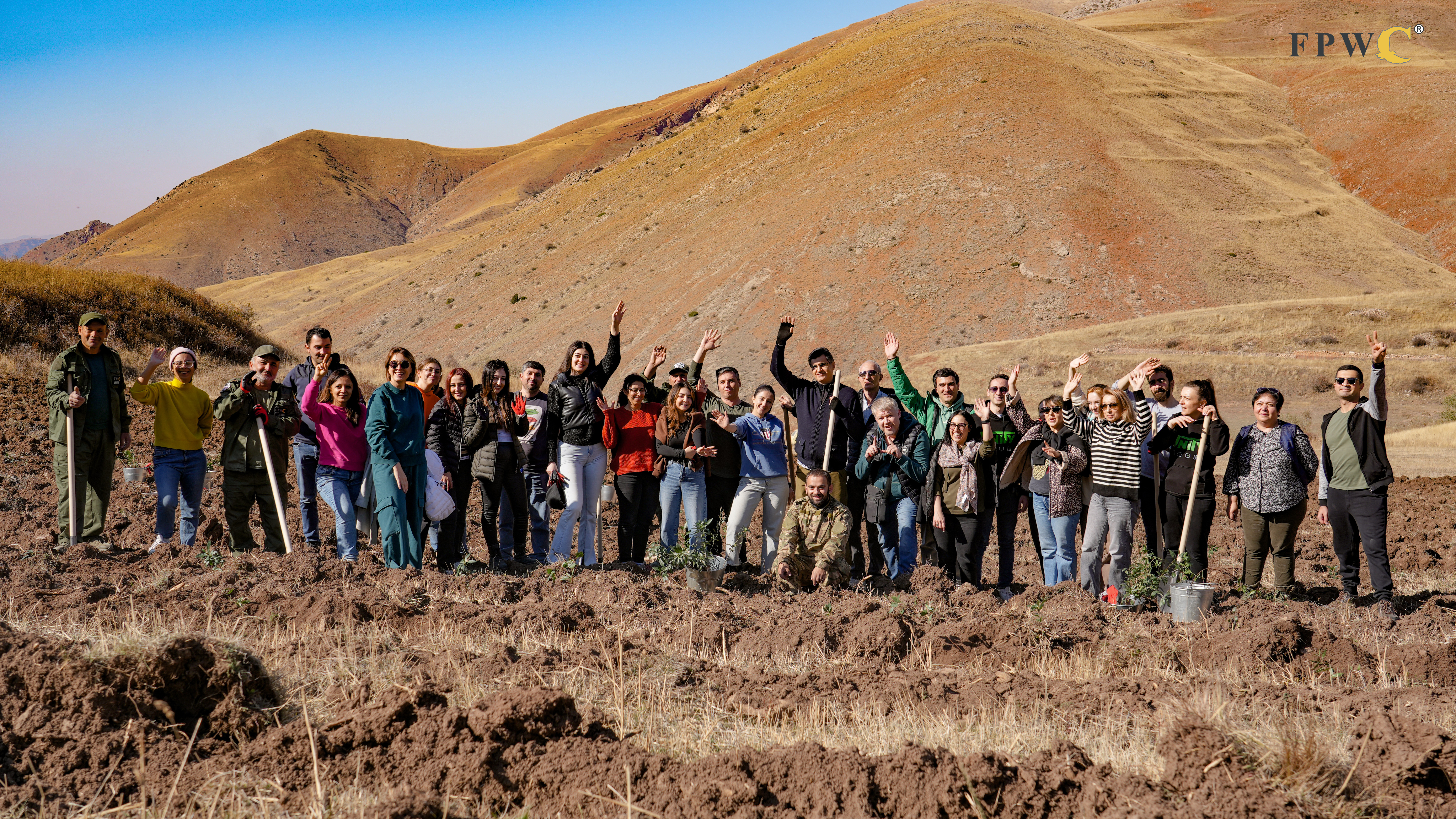
Published on 01/11/2024
The Foundation for the Preservation of Wildlife and Cultural Assets (FPWC) and Sunchild NGO continue to spearhead reforestation efforts in Armenia. On November 1st, FPWC organized an extensive autumn tree planting event in the Vayots Dzor and Ararat regions. This year's initiative gained special significance due to the active participation of Ucom's Director, Ralph Yirikian, and his dedicated team.
Understanding the critical importance of environmental conservation, over 30 employees from Ucom volunteered their time to join FPWC and Arevordi NGO in this vital endeavor. They spent an entire day in the scenic mountains of Gnishik village, part of the Areni community in the Vayots Dzor region, planting more than 2000 trees. The volunteers also had the opportunity to learn about the forest landscape restoration program, the area's environmental challenges, and ways to participate in future volunteer activities.
"Green technologies and environmental care are central to Ucom's corporate responsibility," said Ralph Yirikian, General Director of Ucom. "We have adopted this value not only at the company level but also share it individually. Today, we are happy to be here and contribute to Armenia's green future."
This collaborative effort exemplifies how partnerships between organizations can amplify the impact of environmental initiatives. The active involvement of Ucom's team added significant momentum to FPWC's ongoing mission to restore Armenia's natural landscapes. Volunteers from Ucom not only contributed physically by planting trees but also engaged in meaningful discussions about sustainable practices and future opportunities for environmental stewardship.
By uniting corporate responsibility with environmental activism, Sunchild and Ucom demonstrate the powerful impact that can be achieved when organizations work together towards a common goal. The reforestation efforts in the Vayots Dzor and Ararat regions are a testament to what collective action can accomplish in the face of environmental challenges.
Sona Kalantaryan, Director of Sunchild NGO, emphasized the importance of employee involvement in such initiatives. "It is extremely important when employees are engaged within the framework of cooperation between two organizations, especially when it comes to environmental projects. We plan similar initiatives in our future cooperation as well. Tree planting is only the beginning of reforestation work, followed by years of care and maintenance," she noted.
FPWC employs the Target Plant Concept (TPC), an innovative methodology that enhances the success rate of reforestation projects. This concept focuses on the following key aspects:
"Our focus on site-specific species and innovative cultivation techniques is what sets our reforestation efforts apart," explained Narek Adamyan, an FPWC specialist. "It's about quality as much as quantity."
FPWC's commitment to reforestation is evident in the substantial numbers associated with the project:
The tree planting initiative goes beyond reforestation; it has a multifaceted impact on the environment and local communities:
"The trees we plant today will become the forests that sustain wildlife and communities tomorrow," noted Tsovinar Hovhannisyan, the wildlife conservation expert from FPWC.
FPWC remains dedicated to expanding its reforestation programs. Future plans include:
FPWC invites individuals, organizations, and businesses to join in future tree planting events and support ongoing conservation efforts. By participating, you contribute to:
For more information on how to get involved, please contact us at info@fpwc.org.